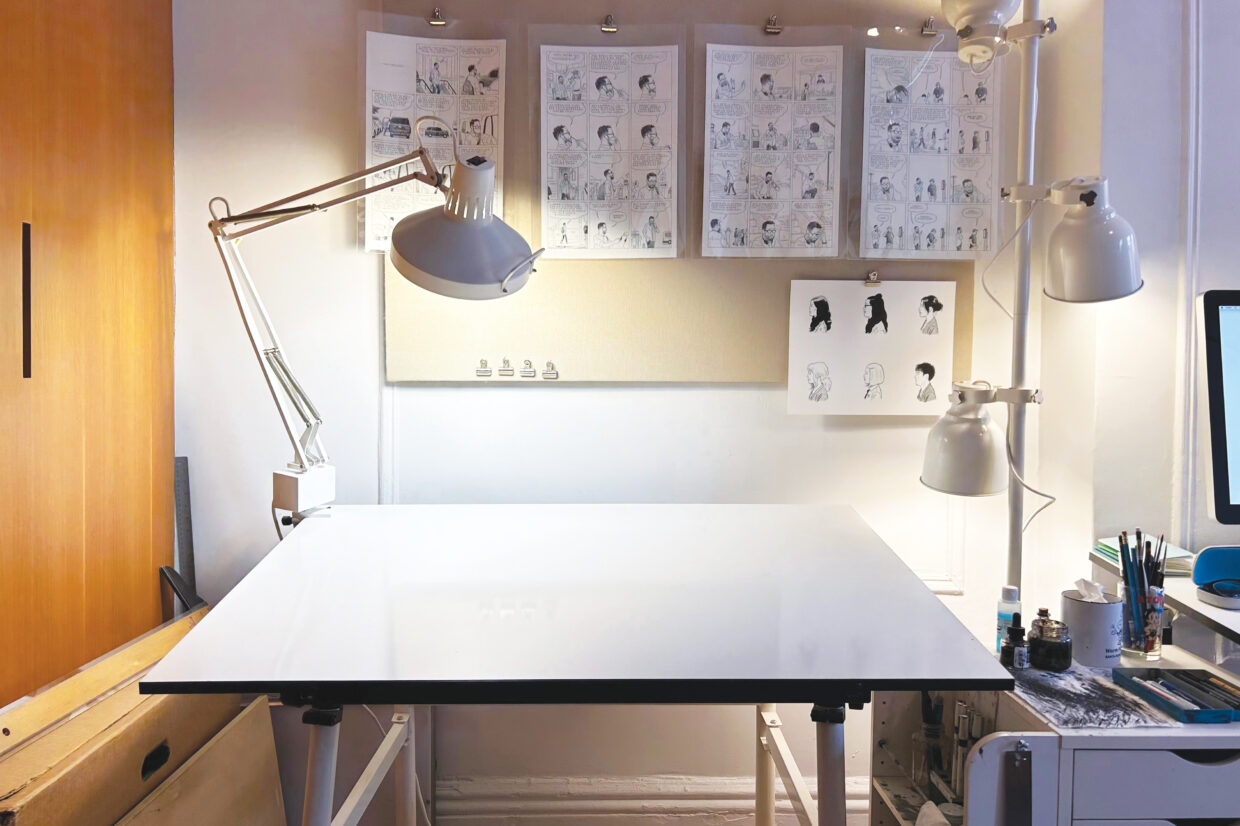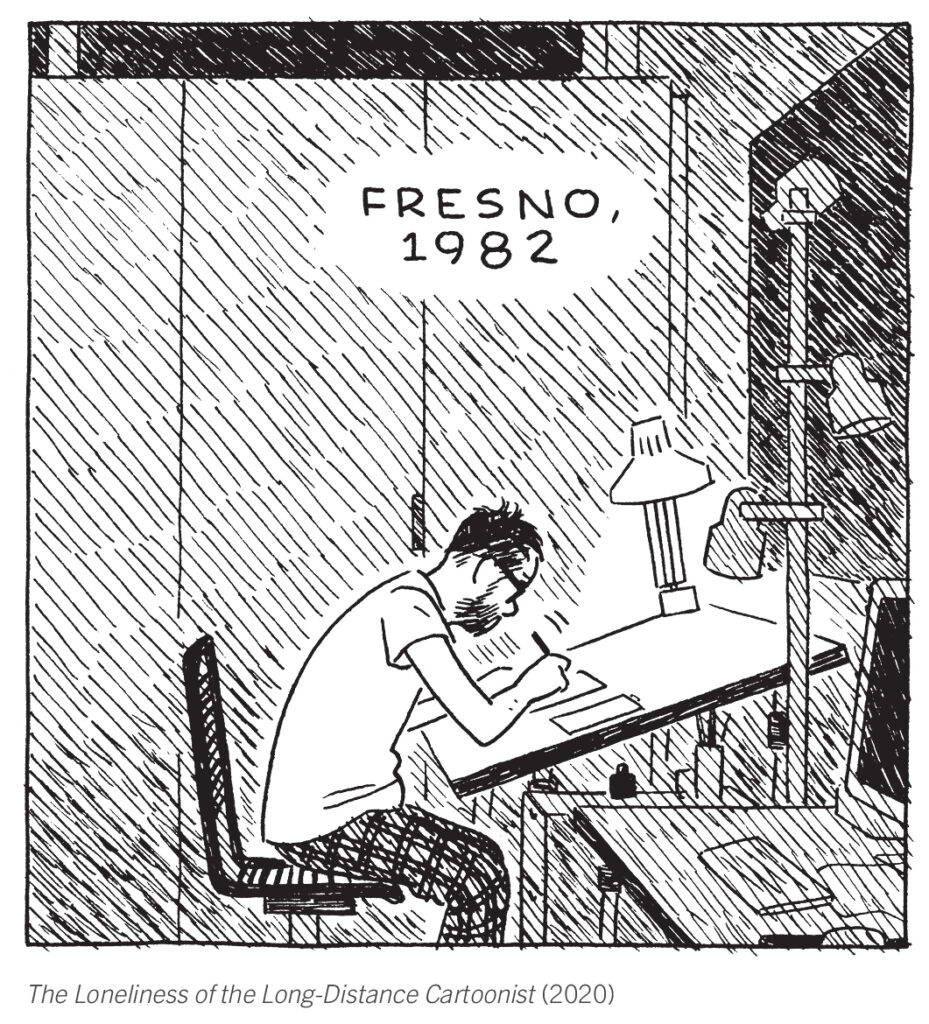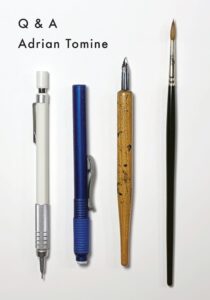
Adrian Tomine on Building a Creative Career
"It’s important for aspiring artists to be honest with themselves and really think about what they’re aiming for."
This first appeared in Lit Hub’s Craft of Writing newsletter—sign up here.
A few years ago I gave a talk at an art school in Manhattan, and I could tell that the students were quickly losing interest in my admittedly ponderous presentation. So in an attempt to regain their attention, I asked the students what their goals were. A guy in the back of the room quickly blurted out, “To do whatever the fuck I want and get rich doing it!” Some of the other students cringed and recoiled, but just as many shook their heads in tacit agreement. I was instantly overcome by feelings of rage and contempt—but also irrelevance, like there was nothing I could really say that would help that guy achieve his goals. I tried to respond in a tactful manner, but I’m sure there was more than a hint of passive aggression in my words.
I’ll admit: my immediate thought was, “God, what an obnoxious, entitled creep!” But when I heard some of the other students’ answers, I found that many of them were vague, muddled, or conflicted. I struggled (and failed miserably) to give advice to a guy who said only that he wanted to “effect change.” I still thought the first person was an obnoxious, entitled creep, but at least he had a clear goal.
And then, as I stood on the subway platform headed home, I felt an all-too-familiar type of cringe washing over me. I hadn’t exactly spent my life hiding my drawings in the floorboards of my house, and I certainly hadn’t refused financial compensation for my work. In fact, that obnoxious creep had actually articulated my life goals, distilled to their most crass, naked form. I literally gasped as the depth of my hypocrisy revealed itself. As is often the case for me after leaving various meetings or events in Manhattan, I had a momentary urge to leap into the subway tracks as the next train approached.

All of which is to say I think it’s important for aspiring artists to be honest with themselves and really think about what they’re aiming for. In hindsight I can see that I took a very scattershot approach to my work, often wasting time pursuing something I didn’t want or ignoring the thing I did. If someone wants to simply be an artist, to express themself, to create work that they love, then really the only way they could possibly fail is by not sitting down and doing the work. If someone wants to make a career of it, that’s another story. And if they, in all honesty, just want to get rich and famous, that’s something else entirely. I can’t give concrete advice for all of those different possible paths, other than to say it helps a lot to know which path you’re on.
When I was thinking about how to best answer this question, I kept coming up with specific, prescriptive bits of advice that would basically guide someone towards making the kind of work that I would like. And I realized that’s not really helpful, especially for someone who might have totally different tastes and interests. But one suggestion that I thought might be applicable to all (or most) aspiring cartoonists or screenwriters is the idea of writing or creating from a place that’s specific to you. I don’t mean everything has to be autobiographical or even semi-autobiographical.
I just mean allowing some of your own authentic feelings, opinions, idiosyncrasies, and experiences to inform the work, regardless of how you think that might be received. Even if that personal angle is deeply sublimated in a completely made-up genre story or spread out across a cast of fully fictional characters, I think it will enhance the work in all kinds of ways, both for you and the audience. This seems like a pretty obvious bit of advice, but maybe it’s a tiny counterbalance to the overwhelming emphasis these days on concepts, plots, spectacle, and “intellectual property.”
The other suggestion that comes to mind isn’t necessarily something that will improve your art (although it might), but it’s more like something cool that you can do because you’re an artist. And that is: make something while you think about someone you love who’s died. I know it sounds macabre, but stick with me. A few years ago, I drew an illustration based on a photo of my grandmother when she was a young woman. I spent over a week working on it, and during that time I recalled more memories and felt more connected to her than I had in many years. I was thinking about how to draw her, but I also found myself thinking about her life and our time together.

I had a similar experience recently with a play I’ve been working on. I was struggling with a certain line, and somehow I had the idea to quote an inadvertently funny thing my dad once said. I thought it would be a little “in joke” that maybe my wife or my brother might chuckle at. But as soon as I typed it out, I could hear my dad saying it as if he was there in the room, and the fictional character I’d given the line to immediately felt more idiosyncratic, nuanced, and alive. At a table read of the script, I had the surreal experience of seeing a great actor utter that silly line of my dad’s. It got an unexpectedly big laugh right where I needed it, and it sent a shiver down my spine, nearly bringing me to tears.
It was several years since my dad’s death, and it felt like he had given me something. I know that many people regularly experience these kinds of vaguely cosmic, time-traveling mental connections at funerals, cemeteries, and places of worship, but for me it happens most deeply within the process of writing or drawing. I can’t promise the same results for you, but I still recommend trying it.
I had what might be described as an unsettled childhood, one that was deeply affected by things like my parents’ divorce, a lot of moving around, and a socially awkward, obsessive personality. Obviously I wouldn’t recommend any of these things if they can be avoided, but I’m also absolutely certain that my career exists as a direct result of them. I basically taught myself to write and draw as a protective defense against chaos and loneliness.
On the other hand, for five years during my childhood I had the privilege of taking weekly piano lessons from a talented, strict, and patient teacher. I never missed a lesson, I diligently practiced for the mandated thirty minutes per day, and I never developed anything close to proficiency. I quickly lost all interest in piano and couldn’t play a simple tune now to save my life. Make of this what you will, but just from personal experience I’ve noticed that there are long-term effects to everything, and they’re often paradoxical.
_________________________________________________
Q & A by Adrian Tomine is available now via Drawn & Quarterly.
Adrian Tomine
Adrian Tomine was born in 1974 in Sacramento, California. He began self-publishing his comic book series Optic Nerve when he was sixteen, and in 1994 he received an offer to publish from Drawn & Quarterly. His comics have been anthologized in McSweeney's, Best American Comics, and Best American Nonrequired Reading, and his graphic novel Shortcomings was a New York Times Notable Book. His book Killing and Dying appeared on numerous best-of lists and was a New York Times graphic bestseller. Since 1999, Tomine has been a regular contributor to The New Yorker. He lives in Brooklyn with his wife and daughters.




















